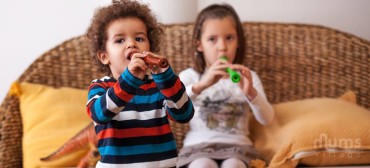
Originally published on MumsVillage
Many of us believe that being self-aware is a positive trait. Indeed, it is – for those with an adult brain.
However, it is important to remember that developing the capacity to become aware of oneself is something our brain learns to do over time. When we are put in positions where we become aware of our self too early, it leads us to become self-conscious and therefore to lose our authentic self.
The brain of a child that is under 6 years, for the most part, has a hard time understanding the difference between what they want and need, and those of others. Think of a 2 or 3-year-old crying her eyes out because she’s been told she can’t have the sweet that is placed just at her eye-level to entice her at the grocery store. She is confused and outraged that there isn’t an automatic ‘YES’ to her expression of ‘I want’.
The ability to start understanding that others have different thoughts, desires and needs start to develop around the age of 6. One phenomenon that I have been observing both as a psychotherapist and an “Auntie,”is that children under 6 are being put in situations where they start to see themselves outside of their own experience.
For example, small children who dance are given a mirror to see themselves.
Many children are photographed and filmed, and then see images of themselves immediately. This causes them to start seeing themselves as an object, rather than just experiencing themselves as pure subject. This leads to children becoming narcissistic and losing their authenticity.
For example, one 4 year old girl I know who I’ll call Natalie came to see me as her Mom and Dad were separating. Mom took lots of pictures of Natalie and showed them to her friends to share all the adorable things Natalie did. Natalie of course wanted to see too.
Her behavior around Mom naturally changed in order to get more of this attention. Instead of just playing, she began to ‘act’ so that her Mom would take more pictures and videos.
Mom felt that something was off, but couldn’t put her finger on it until I asked her to observe Natalie at school, where she was never filmed or photographed. At school Natalie acted in a way where she was not aware of herself, and therefore played freely and happily. At home, 4 year old Natalie was acting like a teenager – putting on several outfits until she found one that she thought made her look pretty, feeling distressed if her hair wasn’t right, wanting to hear that she was pretty and cute.
To continue reading, click here.

